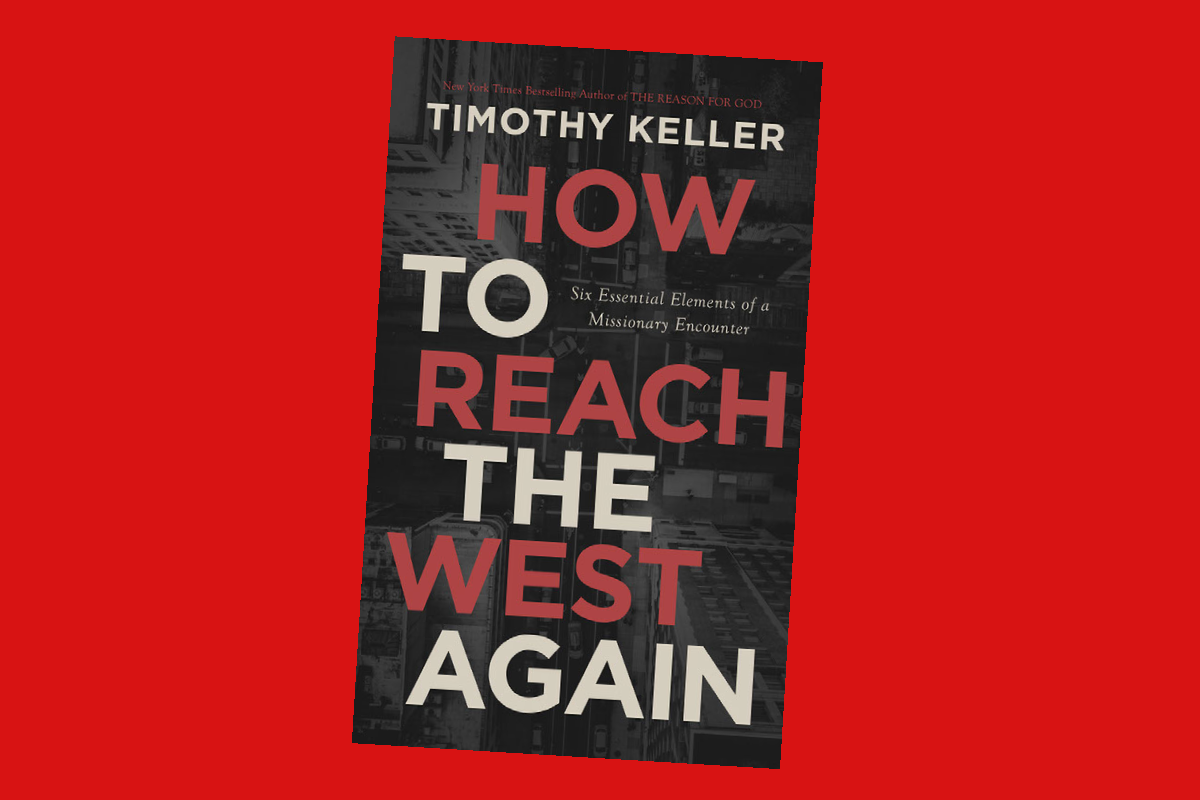This article—it’s considered an eBook—is available free online, as well as an audio version (you can find it here). I recommend it to you. Highly. Please read it and use it as basis for study, reflection, and discussion with thoughtful friends.
Keller begins by acknowledging the “overall decline of Christian influence in the West,” and believes this is an opportunity not for despair but for hopeful action. And we do have reason to hope, because of the staying power of the Church, the historical reality of Christ’s bodily resurrection, and the deep attractiveness of the Story of redemption in Holy Scripture when it is told in a way that non-Christians can appreciate and understand. What is clear is that culture warring will not do the trick and must be stopped—it only serves to increase hostility by demonstrating we are merely one more tribe seeking to garner and exercise political power over our neighbors. Instead, Keller says, we must think of ourselves in a missional context.
Instead of wringing our hands over the loss of cultural influence in Western culture, this decline should prompt us to examine ourselves, pray, and work toward a new missionary engagement with Western culture. We have to model and proclaim the Christian faith in our generation in a way that is both intelligible and compelling to our neighbors. [p. 4]
What Keller is suggesting here is not a new notion; it’s been the task of the Church since the beginning. We expect “foreign” missionaries to go through this process, and now we need to expect it of ourselves. Keller charts the path ahead.
Keller first identifies three challenges we need to face. The challenge of evangelism in a post-Christian world, the challenge of forming Christian disciples in a digital culture, and the challenge of political polarization in a fragmented culture. These three challenges clarify ways our world is changing, and name cultural and societal shifts that have influenced us, as individuals, as families, and as churches. Working through these issues is essential, though not always comfortable, allowing us to clearly see the context into which we are called as witnesses to God’s kingdom.
Keller then lists six “elements of a missionary encounter.”
To have a missionary encounter with Western culture, we must:
Articulate a Christian high theory and apologetic
Ignite a truly post-Christian evangelism dynamic
Teach a counter-catechesis in a digital age
Embody faithful presence in the public sphere
Implement a category-defying social agenda
Display grace to the point
The vision to reach the West again is larger than any church, denomination, or even city. It is a call to exemplify the world-changing, category-defying pattern of the early church and work together to bring it to a new age. It is a call to show the world that the gospel truly changes everything. [p. 12-53]
These six elements are the heart of “How to Reach the West Again.” Keller defines and explains each one in detail, and provides fodder for not only discussion, but for learning and growth and further study.
Finally, Keller concludes with four encouragements: The rise of global Christianity, the power of chosen religion, the culture-formative power of cities, and the heart-warming fact that everything is unprecedented once. [p. 54-57]
What will it take to move the church toward a missionary encounter with Western culture? The answer is collaborative yet independent thinking.
Why collaboration? There simply is no one denomination or tradition that is historically strong in all of these areas—evangelism and formation, high theory yet revival and spiritual awakening, mercy and justice and faith and work integration and historic Christian sexual ethics. Who is sufficient for these things? No one of us, or no one church.
Why independent thinking? As Lesslie Newbigin noted repeatedly, the Western church has been made captive to the ‘gods’ of secular culture, but different branches of people pursue different idols. As a result, every part of the agenda above will attract anger or opposition from one part of the church. Evangelism and sexual ethics will arouse the hostility of the mainline church; emphasis on racial and economic justice will alarm many in the evangelical churches. Those working toward a missionary encounter will need to listen to their critics as a good discipline of self-examination, but in the end, they cannot follow them into their respective cultural captivities. [p. 57-58]
“How to Reach the West Again,” is not formulaic but strategic, outlining not techniques but providing a serious call to significant reflection, learning, and study. None of what Keller proposes is novel given the history of the last two millennia, but it will seem new to many, and will require the followers of Jesus to rethink the shape of our Christian witness in the world of advanced modernity.
For all those who prefer podcasts, this material is available in that format, free online. Here is the description from the website:
Christianity is declining in the West. Churches in the United States, Canada, Australia, and Europe are closing their doors at an accelerating rate.
How will the church respond? And is there any reason for hope?
The How to Reach the West Again Podcast aims to answer those questions and more. In each episode, New York Times bestselling author and pastor Tim Keller discusses a different element of a missionary encounter with culture. He is joined by pastors and scholars from across North America and Europe who unpack and illustrate what a missionary encounter looks like in their unique cultural contexts. Together, they cast a rich and robust vision for how the gospel changes everything—even today in our secular age.
Join us as we learn from Tim Keller’s decades of ministry experience in New York City, as well as from the wisdom of a diverse group of global practitioners who can help you imagine what a missionary encounter would look like where you live.
The podcast by Tim Keller and Redeemer City to City is available here.
May God grant us the grace to heed Keller’s timely challenge.
Image: Copied from online offer of Dr. Keller’s eBook.



